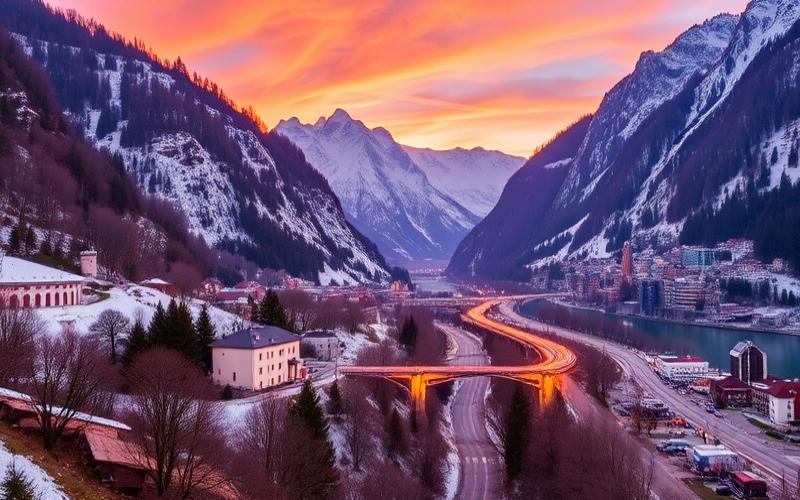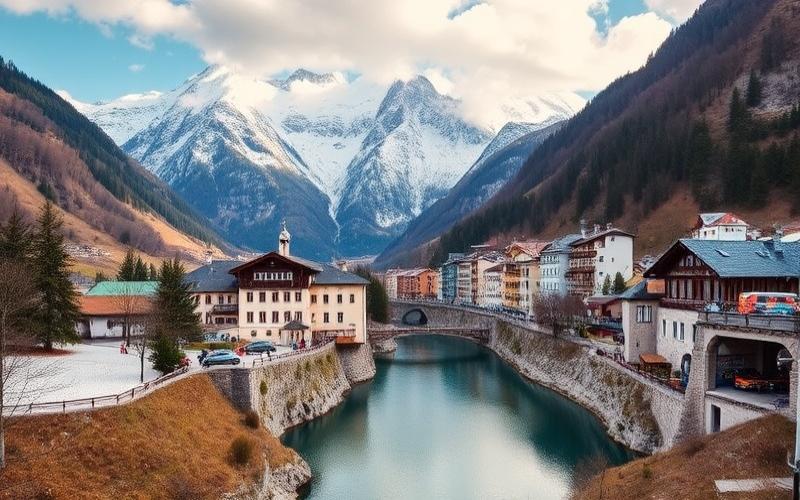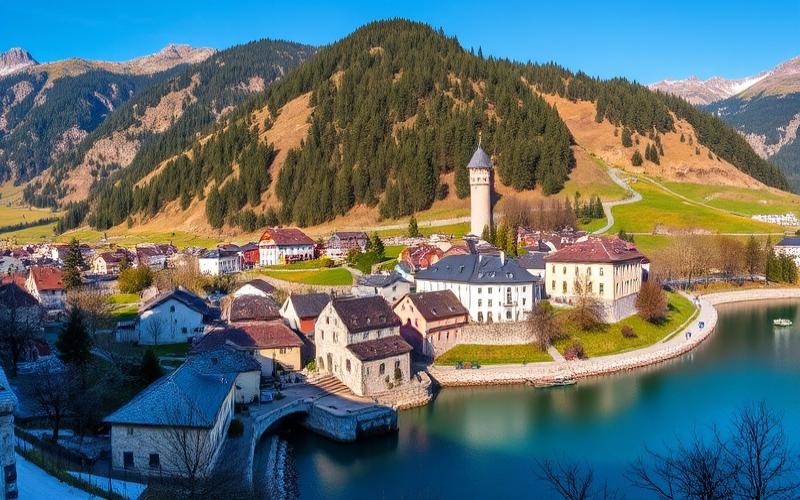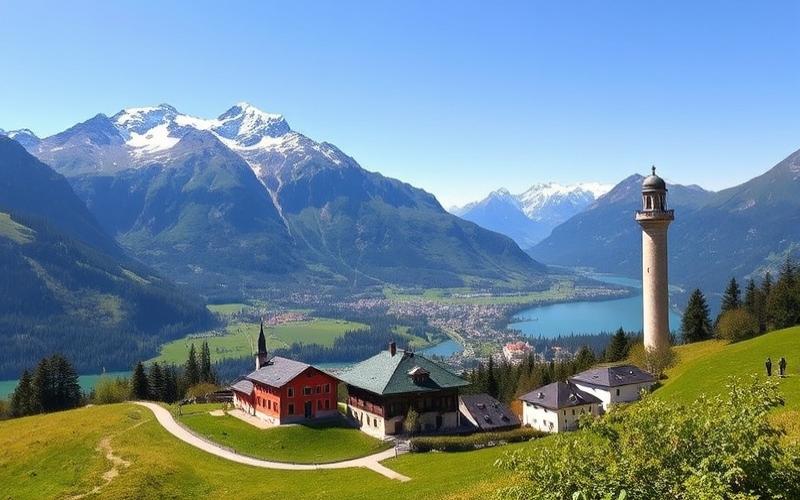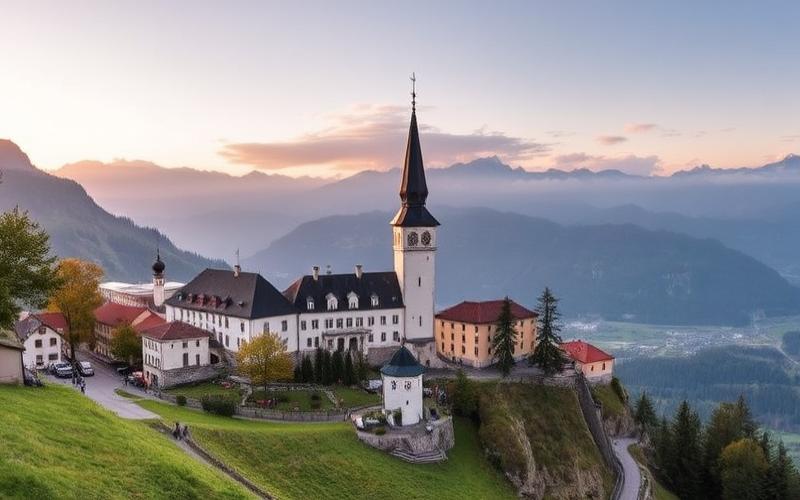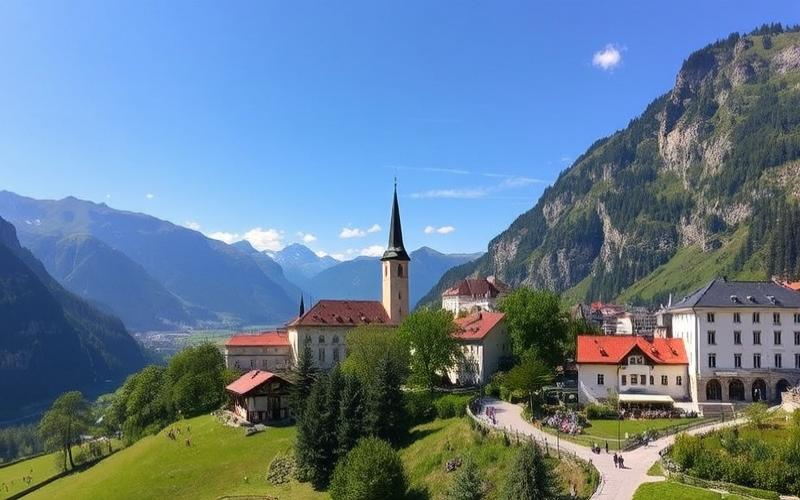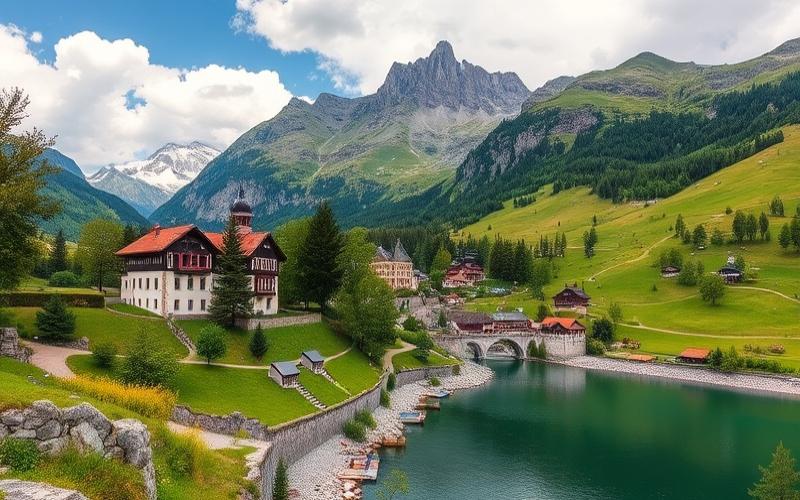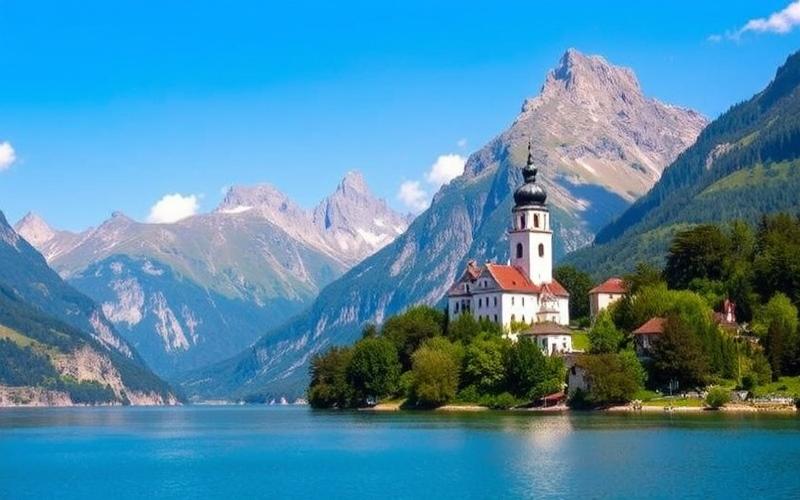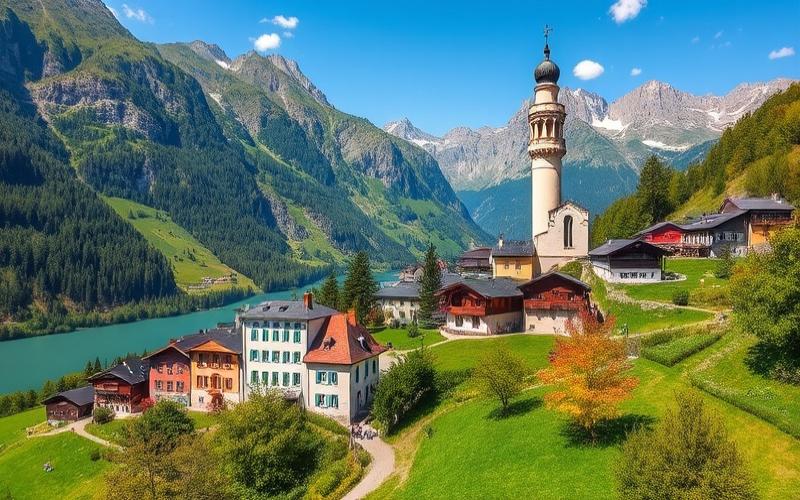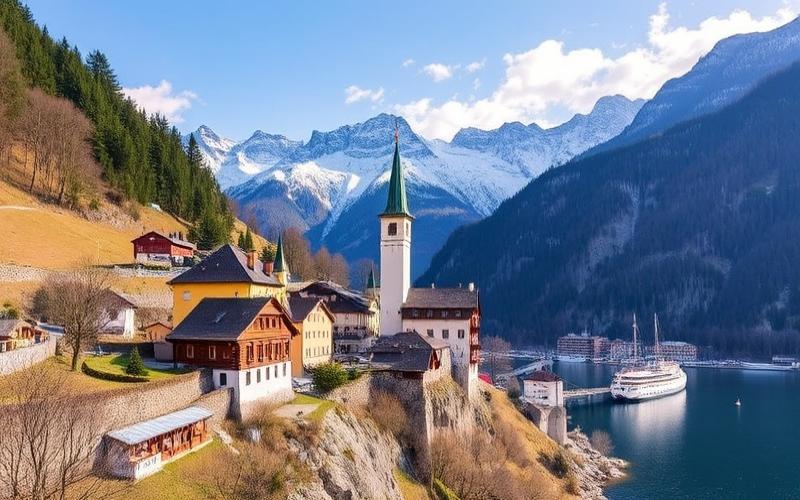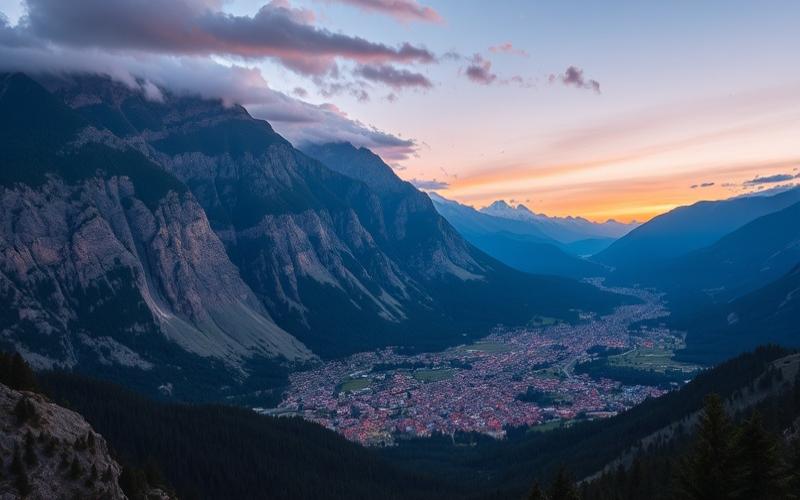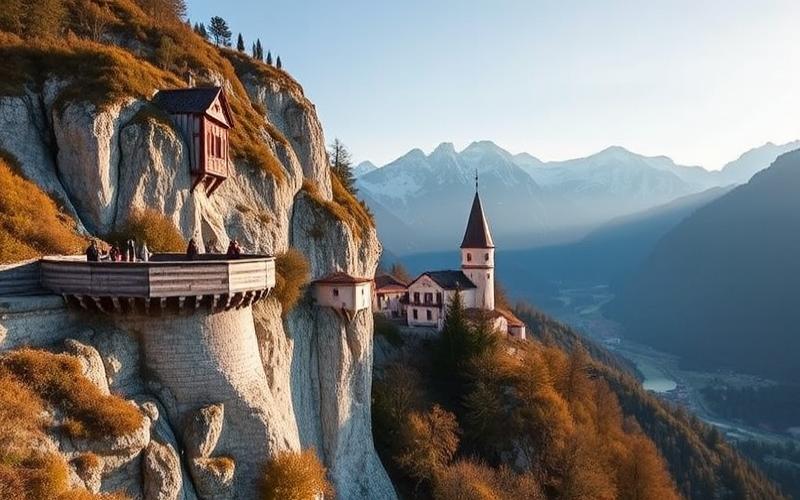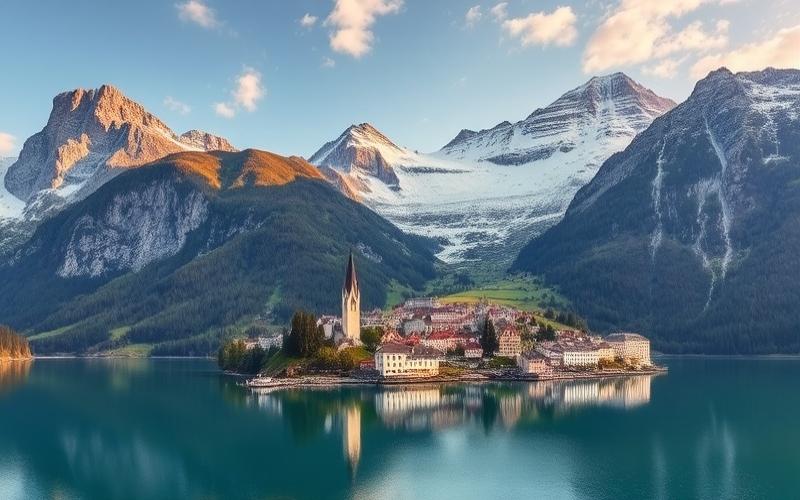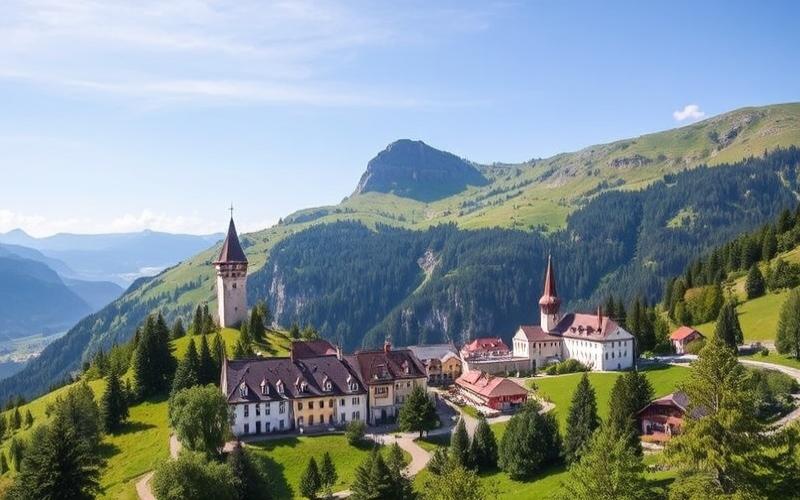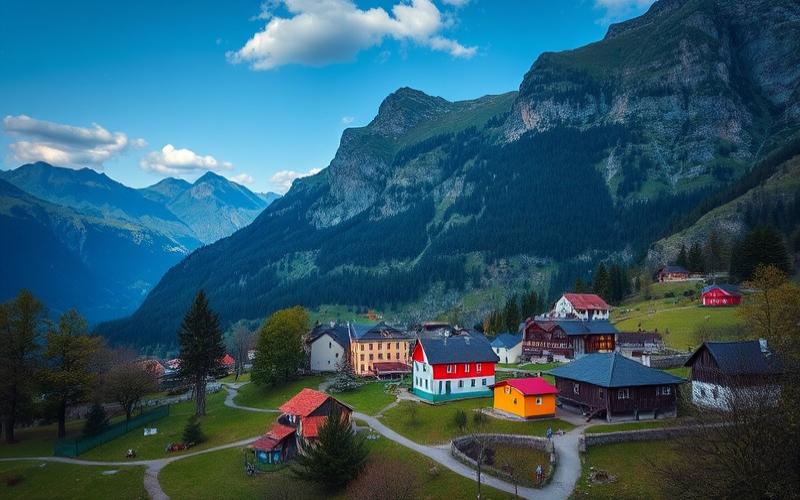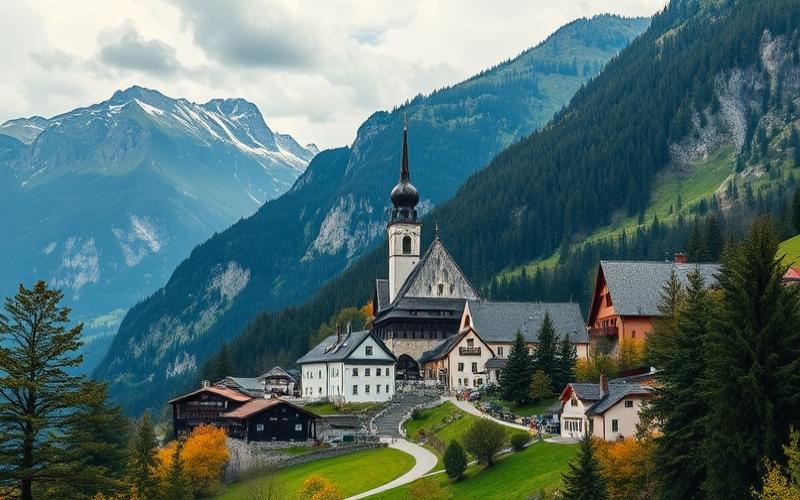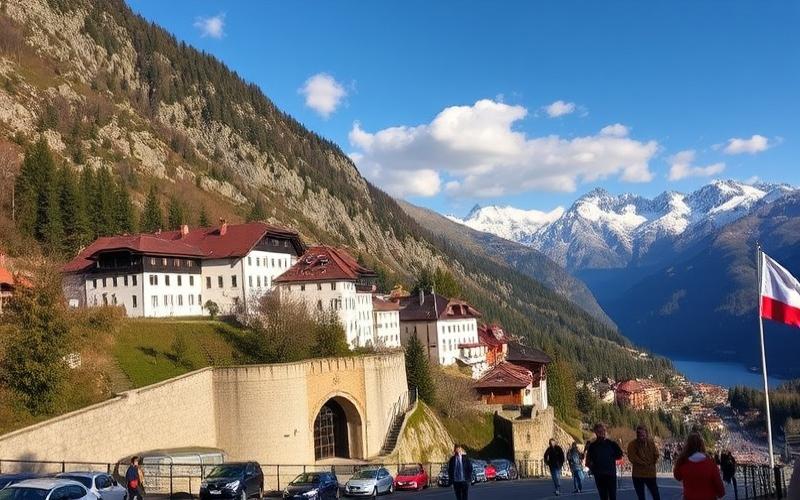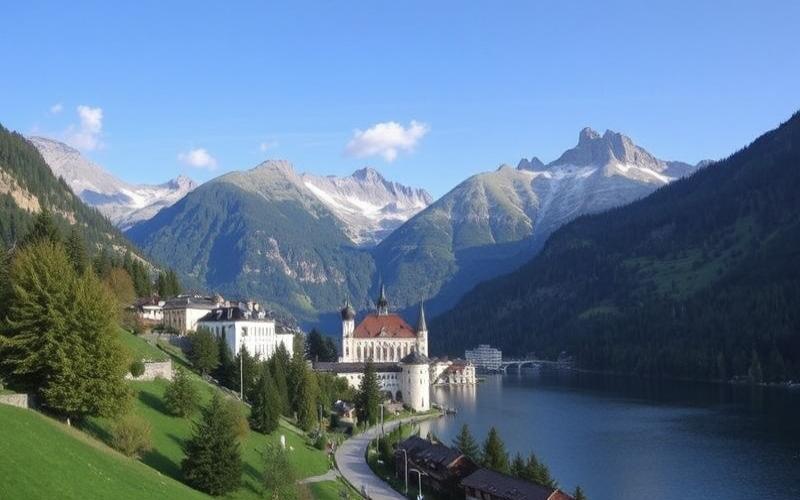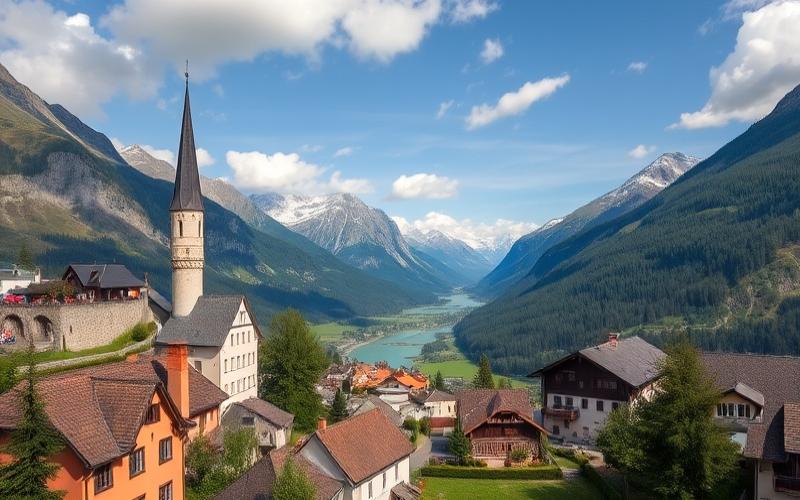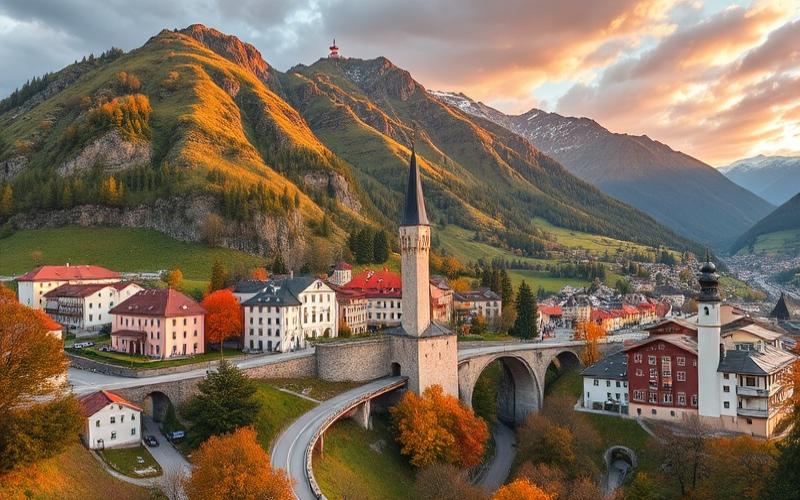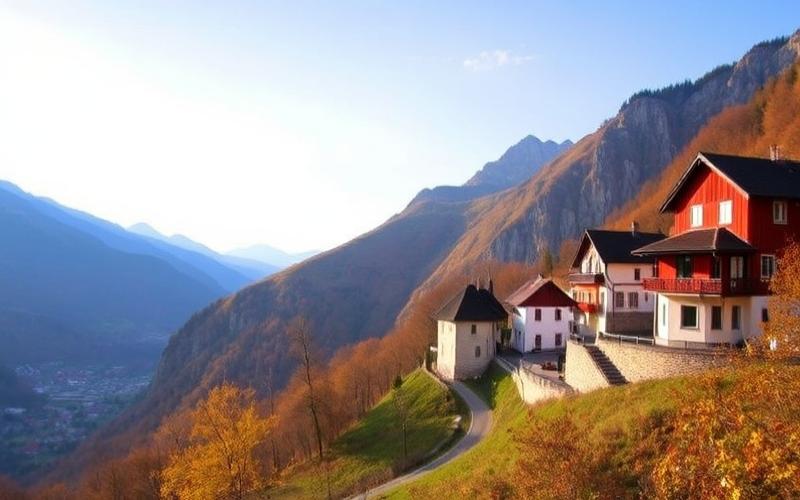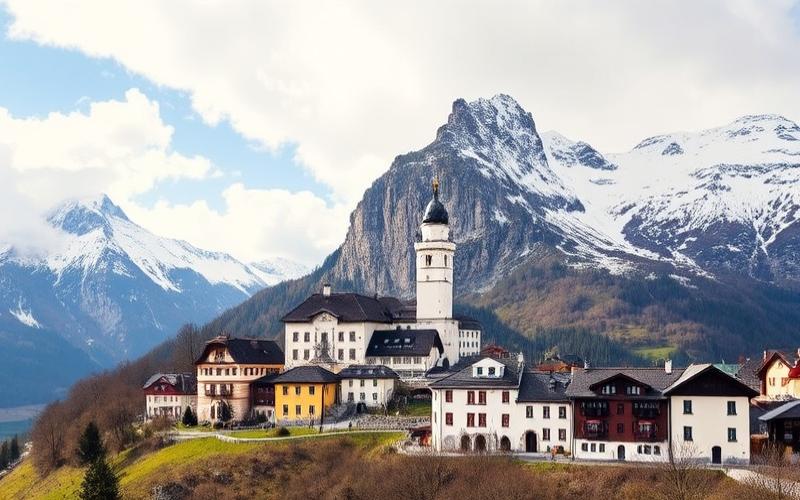
 Published on and written by Cyril Jarnias
Published on and written by Cyril Jarnias
Nestled between Switzerland and Austria, Liechtenstein may seem unassuming, but its unique climate offers residents and visitors countless surprises. Understanding and adapting to this climate is essential for any expatriate looking to settle there long-term.
With its snowy winters ideal for winter sports and its mild, pleasant summers, travelers must be prepared to gear up to make the most of each season.
This practical guide offers a multitude of tips on clothing adaptation, optimizing outdoor activities, and many other tricks that will turn the climate experience in Liechtenstein into a rewarding and exciting adventure.
Adapting to Liechtenstein’s Climate: Understanding Local Seasons
Liechtenstein enjoys a continental climate marked by distinct seasonal variations, influenced by its location in the Rhine Valley and proximity to the Alps.
| Season | Average Temperatures | Precipitation | Sunshine |
| Winter | 32°F (min. 28°F) | Frequent, common snow | Low, short days |
| Spring | 46–59°F | Moderate | Noticeable progression |
| Summer | 75–77°F | Maximum (frequent thunderstorms) | Good in the morning |
| Autumn | 50–64°F | Regular | Gradual decline |
Average annual precipitation: about 37 inches. Rainfall is more abundant from June to August with a predominance of thunderstorms; in winter, it often falls as snow. Annual sunshine reaches about 1,500 hours, which remains moderate compared to other European capitals.
List of practical tips for dressing and preparing according to the seasons:
- Winter:
- Plan for warm coats, thermal clothing, and snow-appropriate shoes.
- Recommended accessories: beanie, insulated gloves, scarf.
- Spring/Autumn:
- Waterproof or windproof jackets necessary due to frequent rain.
- Layered clothing to adapt to rapid changes.
- Summer:
- Prioritize light clothing but bring a sweater or light jacket for the evening.
- Umbrella or raincoat useful during sudden thunderstorms.
Popular seasonal activities:
- Winter: alpine and Nordic skiing in nearby resorts, snowshoe hikes, local Christmas markets
- Spring/Summer: hiking or cycling in the surrounding mountains; outdoor cultural festivals
- Autumn: tasting local wines during the harvest; walks through the autumn landscape
Influence on daily life and cultural events:
Winter conditions can disrupt travel (snowy roads), requiring adaptation to the slower local pace.
Many community events take place in summer when sunshine is at its peak (national holidays, outdoor concerts).
Potential challenges for expatriates & adaptation strategies:
“Expatriates may be surprised by the persistent humidity and relative lack of sun during winter as well as the severity of sub-zero temperatures.”
Recommended strategies:
- Invest in good winter gear upon arrival
- Make the most of the sun whenever it appears during winter to avoid seasonal blues
- Integrate by participating in local activities that mark each season
Good to know:
Liechtenstein’s climate is of the alpine continental type, with mild summers and cold winters. Summer temperatures range between 68 and 77°F, with frequent precipitation, especially in June and July, requiring a raincoat during the popular hikes of this season. In winter, temperatures can drop to 23°F, accompanied by frequent snowfall, ideal for skiing in local alpine resorts but requiring good winter clothing. Spring and autumn present a moderate climate with brief showers; light layers are often sufficient. Sunshine duration can vary, with long days in summer and short days in winter, influencing the organization of cultural events like Christmas markets or summer music festivals. To facilitate adaptation, expatriates are advised to participate in local seasonal activities, helping not only to better cope with the climate but also to integrate socially. Staying informed about weather forecasts and planning outings accordingly is a useful strategy to enjoy each season without inconvenience.
Key takeaways
Quick adaptation involves a versatile wardrobe,
organizing around the local climate calendar,
and openness to discovering traditions & typical leisure activities according to each time of year.
Practical Tips for Maintaining Health and Well-being Amid Climate Variations
To maintain their health and well-being in Liechtenstein, expatriates must adapt to the varied climatic conditions throughout the year. Here are some practical tips:
Clothing Adaptation
Winters in Liechtenstein can be harsh, requiring a suitable winter wardrobe:
- Warm and waterproof coats
- Non-slip boots
- Gloves, scarves, and beanies
Conversely, warmer months require light clothing:
- Shirts and pants in breathable fabrics
- Hats and sunglasses for sun protection
Hydration and Nutrition
- Hydration: Drinking enough water is crucial, especially during cold or hot periods.
- Nutrition: Consuming foods that support the immune system, such as fruits, vegetables, and whole grains, is essential. In winter, prioritize warm and hearty meals.
Physical Activities
Incorporate season-appropriate physical activities:
- Winter: Skiing, snowboarding, or snowshoe walking.
- Spring and Summer: Hiking, cycling, or swimming.
Sun Protection and Stress Management
- Sun Protection: Use high-SPF sunscreen and sunglasses even in winter.
- Stress Management: Regularly practice meditation or use relaxation spaces to manage stress related to climate variations.
Planning Based on Weather Forecasts
It is crucial to stay informed about local weather forecasts to plan outdoor activities accordingly. This helps protect your health and ensure your well-being throughout the year.
Additional Recommendations
- Health Insurance: Subscribe to international health insurance to cover medical needs related to the climate.
- Community: Join local communities to stay connected and supported.
By following these tips, expatriates can fully enjoy their life in Liechtenstein while preserving their health and well-being.
Good to know:
To maintain your health and well-being in the face of Liechtenstein’s climate fluctuations, it is essential to adapt your wardrobe to changing temperatures: prioritize warm, waterproof winter clothing for the winter’s harshness, and light, breathable outfits for summer. Don’t forget hydration despite the cold, and consume vitamin-rich foods to support your immune system, tailored to the seasons, such as citrus fruits in winter and fresh salads in summer. Physical activity should be thoughtfully integrated, adapted to local conditions, with winter sports like skiing or summer hiking. Regularly use sunscreen, as UV rays can be intense even in cold weather. Incorporate relaxation practices, such as meditation, to combat stress induced by these climate variations and monitor weather forecasts to organize your outdoor outings safely.
Equipment and Home Setup for Better Living in Local Conditions
Liechtenstein has a temperate continental climate with four distinct seasons and alpine characteristics. Winters are harsh, often snowy, with average temperatures around 34°F to 30°F in January, potentially lower in mountainous areas. Annual precipitation varies greatly by altitude: about 35 inches in the valley and up to 79 inches in the mountains. Annual sunshine is about 1,600 hours.
To live comfortably during these cold and humid winters, the following equipment is recommended:
- Efficient heating systems:
- Condensing boilers (gas or oil)
- Geothermal or air-source heat pumps suited to alpine regions
- Wood or pellet stoves for natural supplemental heat
- High-performance insulation materials to reduce heat loss:
- Mineral wool (rock wool or fiberglass)
- Insulating panels made of wood fiber or extruded polystyrene for exterior walls and roofs
- Triple glazing on north-facing windows
To optimize interior layout in response to local climate conditions:
- Maximize natural light entry:
- Orient main rooms to the south
- Use interior glass partitions
- Prefer light colors on walls
- Reduce indoor humidity:
- Install mechanical ventilation systems (MVHR)
- Dehumidifiers in sensitive areas like the basement or bathroom
- Include a buffer zone like an entry vestibule to limit cold and moisture ingress
Local architectural features influencing layout:
| Feature | Description / Impact |
|---|---|
| Steep roofs | Promote natural snow shedding |
| Thick walls | Improve thermal insulation |
| Small north-facing openings | Limit heat loss |
| Use of wood | Traditional material offering hygrometric regulation |
For gardening on sloped terrain common in this alpine region:
- Install terraces supported by dry stone walls to prevent runoff.
- Select local plants resistant to frost and prefer cultivation in raised beds.
- Plan a drip irrigation system adapted to slopes.
Regarding renewable energies suited to the mountainous context:
- Photovoltaic solar panels oriented southwest/southeast benefit well from the good sunshine rate even in winter. Typical sloped roofs facilitate their installation.
- Geothermal heat pumps, efficient due to stable underground resources even during very cold periods.
- Combined systems: coupling solar thermal (domestic hot water) with heat pumps allows for enhanced energy autonomy year-round.
⚡️ To strengthen your energy autonomy while respecting Liechtenstein’s natural alpine setting, always prioritize harmonious architectural integration when choosing and placing technical equipment.
Good to know:
To better endure Liechtenstein’s harsh winters, it is essential to equip yourself with efficient heating systems, like radiators with thermal inertia or underfloor heating, and opt for effective insulation with materials like rock wool. Take advantage of large windows to capture maximum natural light, and use dehumidifiers to maintain a healthy environment. Traditional houses often include features like steep roofs, ideal for good water drainage and the installation of solar panels, optimizing renewable energy. On sloped terrain, consider arranging terraced gardens, promoting natural drainage and the cultivation of adapted plants. Finally, geothermal heat pumps can complement a sustainable energy system, allowing you to leverage local geothermal resources.
Strategies for Managing Extreme Climates and Preserving Health
Liechtenstein’s climate is temperate continental with a strong alpine influence. Expatriates may encounter harsh winters, marked by average temperatures dropping to 30°F in January, heavy snowfall, and sometimes difficult access to certain villages or ski resorts. Summers are generally cool and windy, while precipitation remains moderate but can be intense locally, especially in the mountains.
Climate challenges for expatriates
- Low winter temperatures, potentially leading to risk of hypothermia or thermal discomfort.
- Strong temperature variations between seasons.
- Heavy snowfall making some travel difficult.
- Frequent fog and possible extreme weather episodes.
Strategies for managing the climate
Practical list to integrate into daily life:
- Dress in layers: Prioritize layering (thermal underwear, fleece/mid-layer insulation, waterproof jacket) to regulate body temperature throughout the day.
- Efficient use of indoor heating:
- Program heating to maintain a comfortable temperature without overheating.
- Ventilate the home daily even in cold weather to avoid excessive humidity and preserve indoor air quality.
- Maintain adequate hydration: Drink regularly even without feeling thirsty because cold can mask usual signals; also prioritize warm soups or herbal teas.
Summary table
| Climate Challenge | Adapted Strategy | Practical Tips |
|---|---|---|
| Winter cold | Multilayer clothing | Plan beanie/gloves/scarf |
| Indoor dryness | Humidifier / regular ventilation | Houseplants/room humidifier |
| Thermal variations | Adapt clothing according to activity | Keep an insulating layer accessible |
Specific health tips
Protect your skin with rich moisturizing creams to prevent chapping and drying due to dry cold. Use a nourishing lip balm. To preserve respiratory health: avoid overheated/dried-out rooms (use a humidifier), ventilate your living space often.
Mental health during winter
To combat potential mood drops related to lack of sunshine (only 1,600 hours/year):
- Maintain a regular exercise routine adapted to winter (brisk walking, yoga at home).
- Consider vitamin D supplementation after medical advice as it is poorly synthesized naturally during this cold and dark period.
- If needed, use a dedicated light therapy lamp each morning to compensate for the natural lack of daylight.
Practical suggestions easily integrable into an expatriate lifestyle
- Schedule outdoor activities during daylight hours
- Join local sports clubs or participate in indoor group activities
- Set up a “well-being” corner at home dedicated to relaxing routines (reading under a lighted blanket)
- Plan a few cultural or social outings each week despite the climate
This operational approach not only allows effective taming of the alpine climate, but also gradual integration into your new setting while preserving physical and mental well-being.
Good to know:
Liechtenstein’s rigorous climate, with its cold winters and temperature variations, can pose challenges for unaccustomed expatriates. To face these conditions, it is crucial to dress in layers, allowing adaptation to daily climate changes, and ensure adequate indoor heating to maintain a comfortable temperature inside. Regular hydration is equally important, as heating can dry out the ambient air. Protecting the skin with moisturizing creams and using humidifiers can reduce skin and respiratory irritations. To maintain good mental health in winter, integrate physical exercise into your daily routine, even indoors, get enough vitamin D, and use light therapy lamps to compensate for the lack of natural light. Adapt these strategies flexibly to your daily life by following simple practices, like planning regular outings despite the cold or organizing home workout sessions to stay active.
Disclaimer: The information provided on this website is for informational purposes only and does not constitute financial, legal, or professional advice. We encourage you to consult qualified experts before making any investment, real estate, or expatriation decisions. Although we strive to maintain up-to-date and accurate information, we do not guarantee the completeness, accuracy, or timeliness of the proposed content. As investment and expatriation involve risks, we disclaim any liability for potential losses or damages arising from the use of this site. Your use of this site confirms your acceptance of these terms and your understanding of the associated risks.

